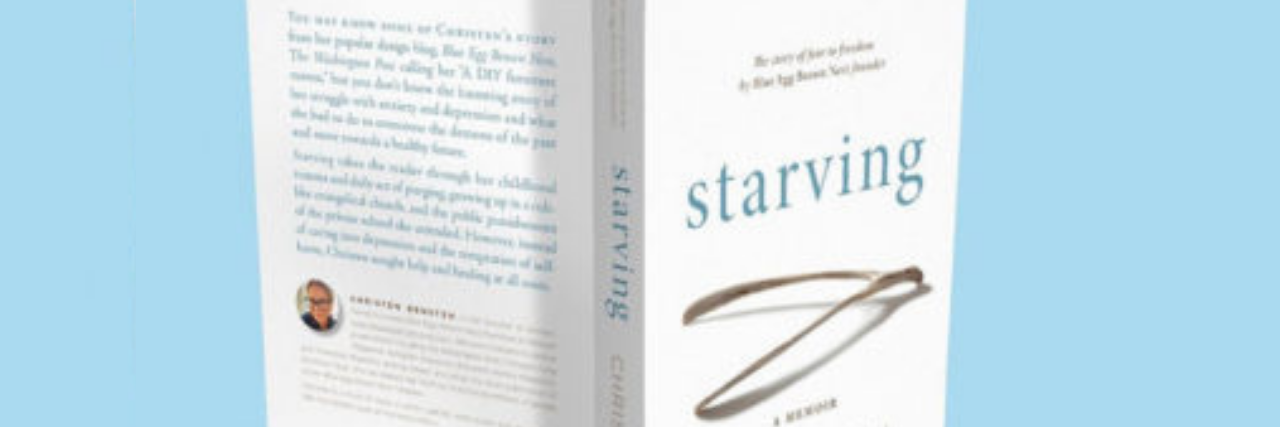How Writing a Memoir About My Trauma Freed Me
Editor's Note
If you have experienced physical abuse, the following post could be potentially triggering. You can contact the Crisis Text Line by texting “START” to 741741.
If you have been struggling with mental illness for a while like I have, you probably have heard repeatedly that you should write down your feelings. I did this. I did this when I started purging every day before school at age 10. I have three huge storage boxes of journals.
Did it help?
I’m not sure. I was completely alone in my deteriorating world. My friends didn’t understand, and my parents offered me Bible verses instead of an appointment with a good therapist. I locked myself in my room for most of my teenage years and sometimes my only source of comfort was a blank page.
Fast-forward and I am 43, a mom of three and still struggling with anxiety and depression. I have been medicated for the past 10 years and go to therapy weekly. I am in charge of my own mental health and you know what I do for comfort on a Sunday when I feel that debilitating anxiety creeping into my gut? I write. And what did I do when we locked our doors a year ago to quarantine while people around us were dying? I sat on the corner of my bed and wrote. I wrote and wrote and wrote.
I always knew I was going to write a memoir, tell my story so others could see it, could see me. I tried to write it years ago, but the story had not cured. It was not ready, probably because I was not ready. But, when COVID-19 came and we were all in this mess, the boat, wondering if any of us would survive, I finally wrote my memoir.
I started at the beginning. I started by talking about how much fear I had in the house with my mother who was so vacant, only to find out later she had undiagnosed borderline personality disorder (BPD). I always thought she just found me disgusting. I wrote about the evangelical church I went to every week and the exorcisms and the speaking in tongues. And I wrote about the private, Christian school where they paddled my friends, duct-taped our mouths shut and tied us to the chairs if we got up too often.
All these things contributed to feelings of hopelessness and thoughts of self-harm. When I had my daughter, I found new courage. I put up healthy boundaries with my mother who was still trying to insert her will into my life. Yelling at her in the middle of my yard was the climax of my story — the point in which I said, “No more.” After that moment, I knew I had to fight for my health like my life depended on it. And it did. I had two more children, a husband and a life to fight for.
Of course, that doesn’t mean I’m not still struggling, waking up frozen or crying on the bathroom floor when I’m triggered, but I have gotten up and fought before, and I know I will again. Writing a memoir, my story, has released me from the prison. I feel like I have landed on the shores of the promised land; I have survived. The writing itself offered me clarity. The publishing and offering to friends is to show my vulnerability and quest for connection. But, most of all, it is holding a solid object, words describing my side of the story without interruption. For so much of my life, I felt misunderstood.
Now, I stand in the light and say, this is how it was for me. My memoir is not reactionary, it is just my truth. I feel as though I can take in a breath for the first time in my life. I don’t have to live as the shy, fearful girl. I can live in the freedom I built for myself.
“Starving: A Memoir” by Christen Bensten is now available on Amazon.
Original photo by author

